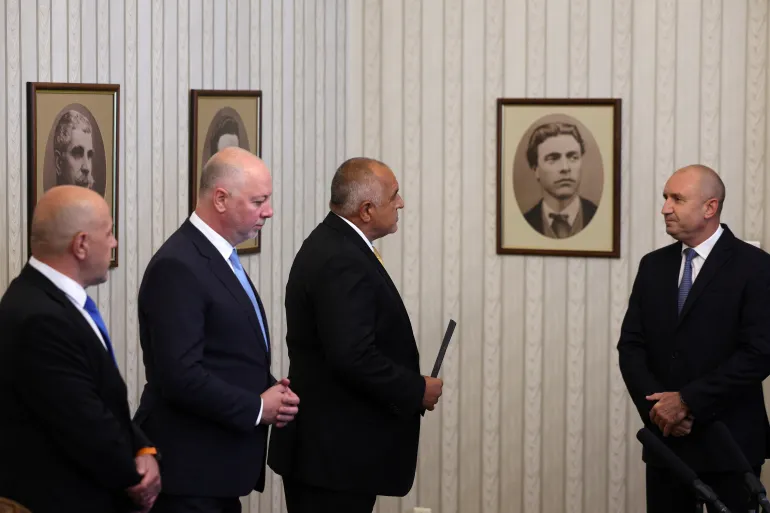Bulgaria’s GERB Party Assigned to Form Minority Government Following Sixth Snap Election in Three Years
In the wake of the June 8 vote, Bulgaria’s center-right GERB party has been tasked with forming a minority government. This election, the sixth snap poll in three years, resulted in GERB securing the most seats in parliament but falling short of an outright majority. The political landscape in Bulgaria remains highly fragmented, posing significant challenges for stability and governance.
Election Results and GERB’s Position
The June 8 election saw GERB, led by Boyko Borissov, emerge as the party with the most seats. Despite this, GERB did not achieve the majority needed to govern independently, forcing them to navigate the complexities of forming a minority government. The party’s leadership is now focused on negotiating alliances and support from other political factions to establish a functional administration.
Context of Political Instability
Bulgaria has faced a period of prolonged political instability, marked by frequent elections and a fragmented parliament. The June 8 vote was the sixth snap election in three years, reflecting deep-seated political volatility and public dissatisfaction. Previous governments have struggled to maintain cohesion, often leading to early elections and short-lived administrations.
Challenges of Forming a Minority Government
GERB’s task of forming a minority government comes with inherent challenges. Without a clear majority, the party must seek support from other political groups, potentially including the Movement for Rights and Freedoms (DPS) or the Bulgarian Socialist Party (BSP). Building a coalition or securing external support will be crucial for GERB to pass legislation and implement its policy agenda.
Negotiations and Potential Alliances
Negotiations are underway as GERB explores possible alliances. The party’s leadership is keen to stabilize the political environment by forming a workable government. Potential partners include smaller parties and independent members of parliament who could provide the necessary backing for GERB’s legislative initiatives. However, these negotiations are complex and require significant compromise and strategic maneuvering.
Public Sentiment and Political Climate
The repeated elections have contributed to voter fatigue and skepticism towards the political process. Public sentiment in Bulgaria reflects a desire for stable and effective governance. GERB’s ability to address key issues such as corruption, economic challenges, and social policies will be critical in gaining public trust and support.
Economic and Social Implications
The formation of a stable government is essential for Bulgaria’s economic and social development. Prolonged political uncertainty has hindered policy implementation and economic progress. A functional administration led by GERB could focus on critical areas such as economic recovery, healthcare, education, and infrastructure development, addressing the pressing needs of Bulgarian citizens.
International Reactions
International observers and Bulgaria’s European partners are closely monitoring the political developments. Stability in Bulgaria is crucial for regional security and cooperation within the European Union. GERB’s efforts to form a government that can navigate both domestic and international challenges will be pivotal for the country’s future.
Conclusion
Bulgaria’s GERB party faces the complex task of forming a minority government following the June 8 snap election. Despite securing the most seats, GERB must now engage in strategic negotiations to build a coalition or gain support from other political factions. The repeated elections highlight the ongoing political instability in Bulgaria, with significant implications for governance and public trust. As GERB navigates this challenging landscape, the focus will be on achieving stability, addressing key national issues, and restoring public confidence in the political process.

